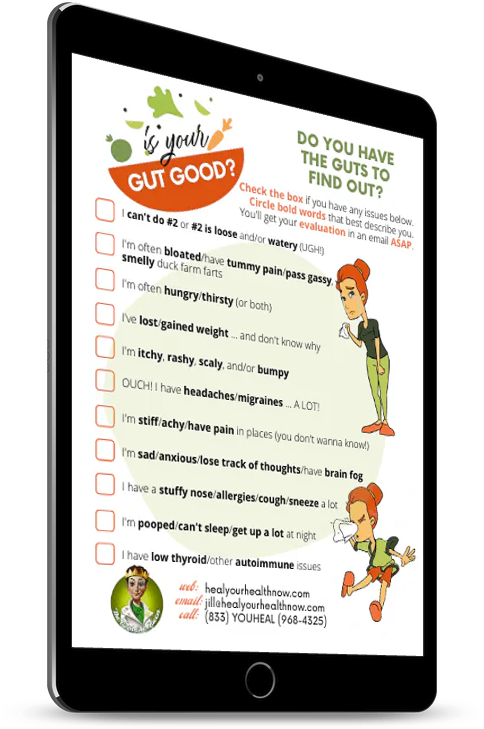 By Dietitian Jill
By Dietitian Jill
I JUST gotta rant about weight change! Two people called me recently. One had just given up purging (AKA vomiting … sorry to offend!) a week previously.
And expected to be over with a several-year eating disorder overnight. I’m now treating her but insisted that she also see a therapist.
And that she committed to a year of weekly visits with me. She’s doing well right now. But I’m not sure how long that will last.
The other weighed 76 pounds and expected me to take her on as a client. She’s over 50 (most places don’t accept older clients) but fortunately has enough money (most don’t) to go inpatient at one of the most prestigious eating disorder facilities in the US.
If you don’t have insurance, these places can cost $30 to 40,000 a month. Quite frighteningly, seemingly unaware that her current weight was life-threatening, she was already bargaining with me about how many pounds she didn’t want to gain back.
I quickly affirmed her inpatient plans and suggested that we work together afterwards. She’s much too underweight to be medically stable at this time. Or to work with anyone on an outpatient basis.
Changing your Weight = Changing your Whole Life
OK … reality check! These are examples of very severe disordered eating individuals. And most people fortunately don’t have these severe problems.
I like to think of eating issues on a scale of one to ten. Most people are under-fives … these ladies are eight to ten.
But even though your disordered eating doesn’t rule every moment of your day like these ladies, changing your weight does NOT begin with pounds on a scale or an unattainable ideal. It begins with how you FEEL about your body and your eating and is a JOURNEY toward comfort with each of them.
So I’m not surprised that, while reading the book, “Fat!So?”… about self-acceptance at any size … at the local car wash, someone approached me and booked a session because his (yes, men feel at odds with their eating too) relationship with food wasn’t great either.
The reality check about food is that most of us feel at odds about it, that we’re full of little factoids (facts perverted by our own belief systems as well as often stupidly-wrought opinions we’ve heard and read everywhere) that feed this food-fear. And that we live lives of quiet desperation about a substance that’s supposed to simultaneously feed, nurture, and albeit nourish us physically, mentally and spiritually.
So what do we do? Here are some ways to lead yourself out of this seeming food-madness. First and foremost …
Become Aware
Just by really seeing how you behave around food can really help you come to terms with it. But first here are some guidelines around this food-awareness process:
1. DON’T JUDGE anything you eat. I know this is a tall order as we’re so brainwashed with food-fear propaganda from the internet, TV, experts, and even my association to separate foods into “good” and “bad” categories and promote this belief to everyone within earshot.
Instead, observe and record what you eat with a non-judgmental eye, perhaps saying to yourself, “Oh, I ate the chocolate caramel … how interesting”. It’s very freeing to just note foods and not beat yourself up over them.
2. WRITE DOWN everything you eat. I use this confront tool with all my clients whether they’re losing weight or avoiding sensitive foods. And lately I’ve become enamored of the app (both Android and iPhone) “mySymptoms”. You can not only write down your food here … you can record how you feel about it.
3. RECORD your feelings. One of the things I like about the “mySymptoms” app is that you can add symptoms … I added “Anxiety”, which seems to be the number one cause of overeating … and rate them from low to high.
You can even put “Overate” as a symptom … or whatever you want. This app was made to track food and medication interaction symptoms but that doesn’t mean we can’t modify it for our own needs to become aware of what we do with food.
So instead of tracking “Bloating” or “Stomach Pain”, you can delete those (if you want) and add things like “Anxiety”, “Depression”, “Confusion”, or “Happiness” (because we don’t always eat because we have negative feelings), track your food, and record your feelings. Tracking “Hunger”, however, may be the most powerful thing you do on this journey.
4. NOTICE your hunger. I’ve got a different spin on this since I went to a nutrition and behavior change summit with the top researchers from the top schools “weighing in” on this topic just last weekend. I’ll share more about it with you and about the summit in my next blog, “The Hunger Conundrum”.
But for now, just notice when you’re hungry, satisfied, or full. Because most of us eat mindlessly … never putting down our forks and burgers … or when it’s time to eat.
Few of us consciously think, “I’m not going to eat until I’m hungry”, “I’m only going to eat until I’m satisfied” or … better yet … “I’m not too hungry … what can I eat so I won’t be so full”.
Honoring your hunger is not only physical … it puts you into balance with you mind and spirit too. And is what intuitive eaters do quite unconsciously.
5. HONOR your “Best Weight”. One of the things I learned at the summit is to honor your “Best” instead of “Ideal” weight. We’re so obsessed with arbitrary numbers given to us by insurance companies or obscure agencies to try and define what we SHOULD weigh.
And, BY the way, someone lowered the acceptable BMI a while ago from 27 to 25 for no valid reason. Throwing millions more into the “overweight” or “obese” categories.
I am NOT a number on the scale. And, as such, I need to honor the weight I feel best at … not an arbitrary number chosen by some agency that may not put my ultimate well-being first. So should you.
Where are you at where it comes to your weight? Are you comfortable? Or do you buy into outside messages about the way you need to look and feel?


A million thanks for posting this inrafmotion.